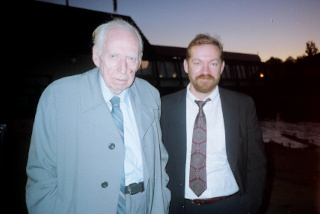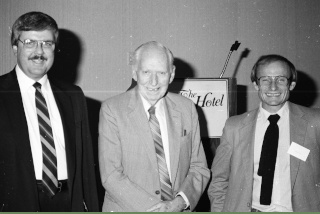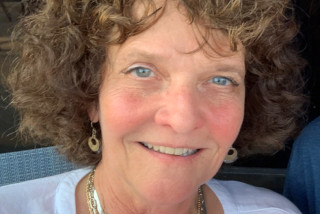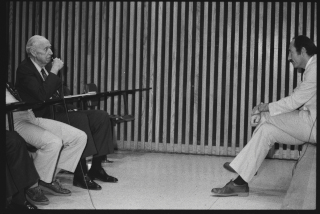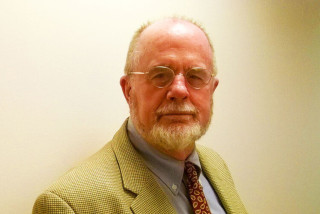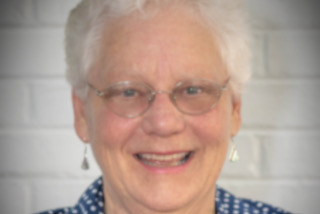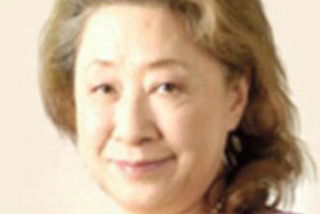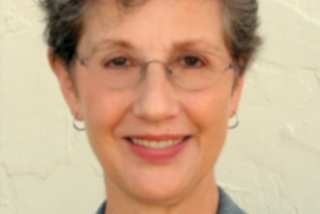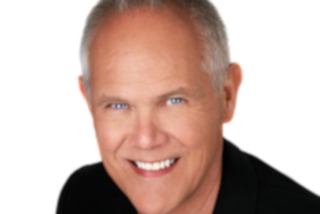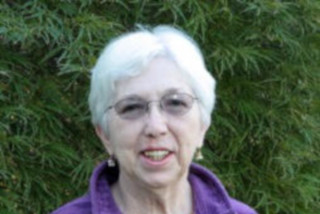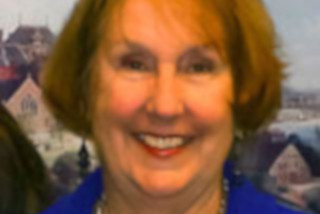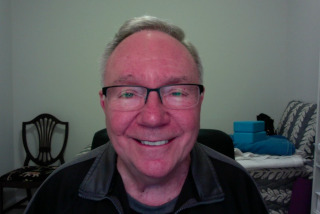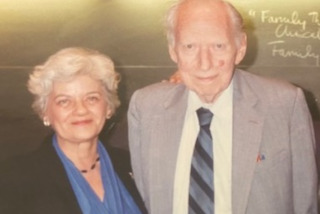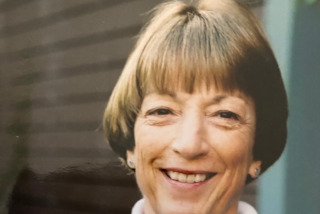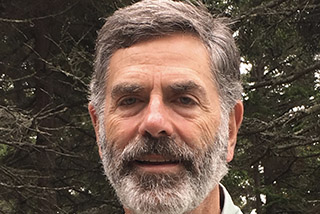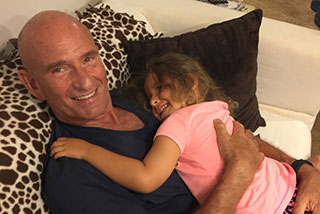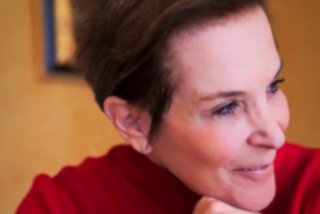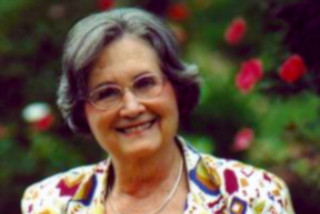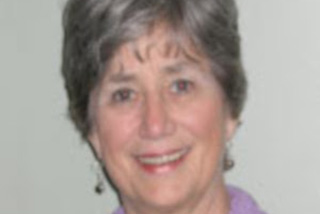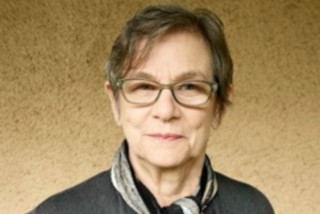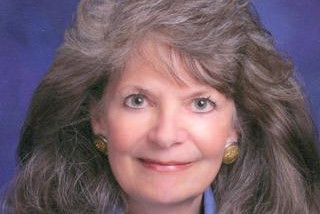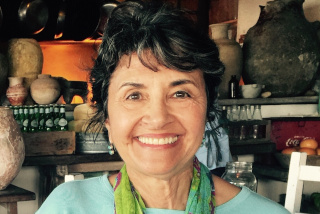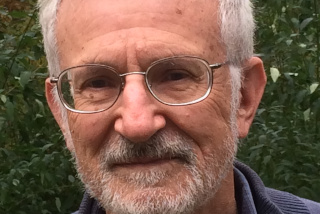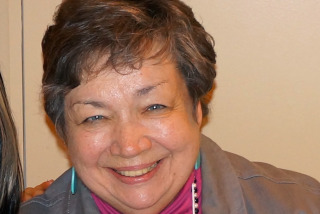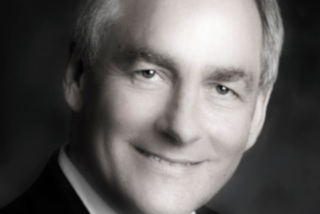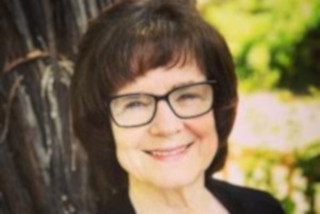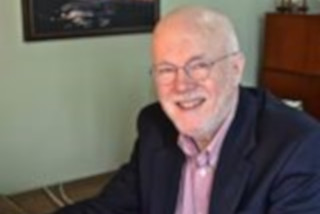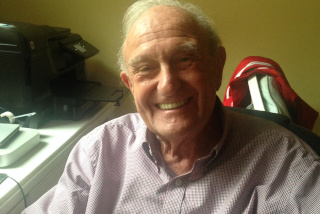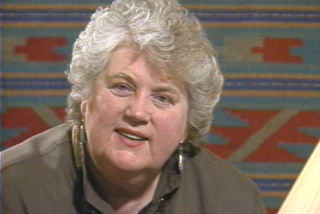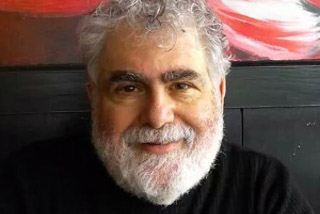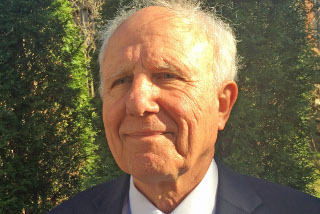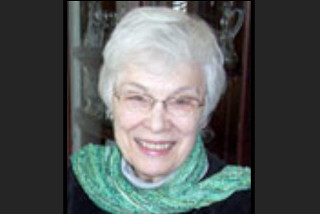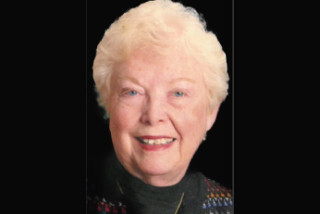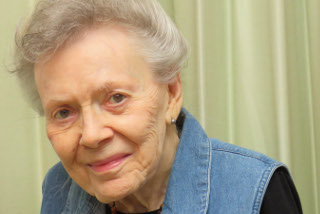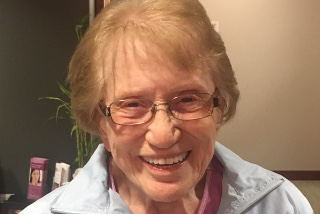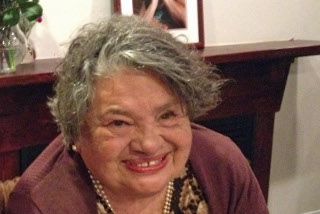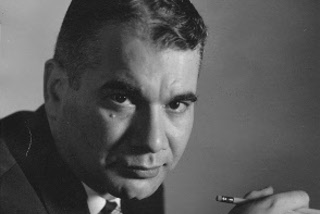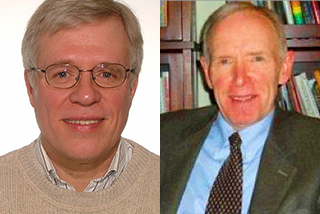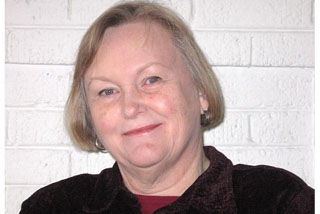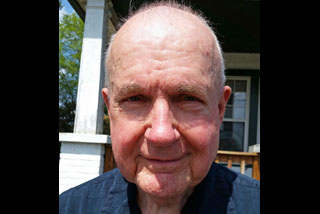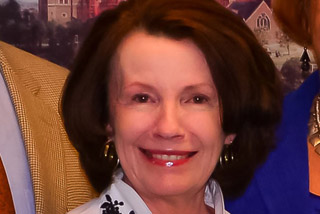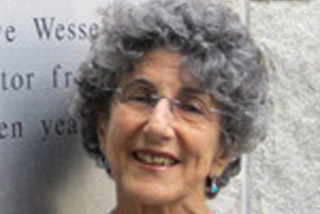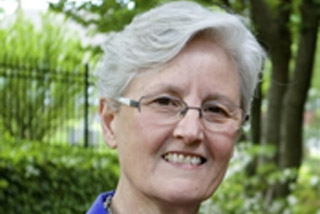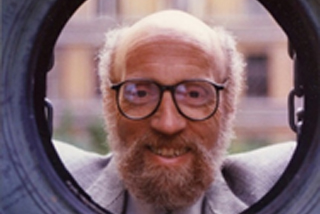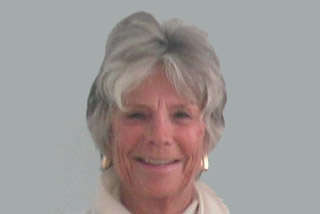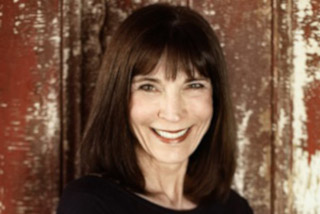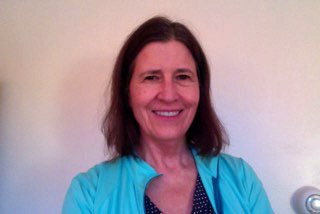In this interview, Mike Sullivan and Andrea Schara discuss how Dr. Bowen handled himself with an audience at conferences, particularly those that Mike Sullivan organized in Traverse City, Michigan. They both emphasize how Dr. Bowen could challenge the underlying conceptions of the audience and stay calm when they got upset. Mr. Sullivan notes how Dr. Bowen’s presentations really drove home the “whole notion of just how we’re all in the same boat,” and the ways in which Bowen theory has inspired him throughout his life, including in his musical career. Bonus: Hear Mr. Sullivan sing one of his songs based on Bowen theory!
Oral History Interviews
Listed below are interviews from professionals who had relationships with Dr. Bowen discussing how he impacted their lives. These oral histories add to the body of work detailing how Dr. Bowen developed Bowen Theory in relationship with others and highlight his consistent use of the "I" position. Listen to the interviews below from colleagues, staff, and professionals as they talk about how Murray Bowen's impacted their lives.
Mike SullivanGerald Schwan
In this interview, Gerald Schwan describes how, in the early 1970’s, his advisor, Clem Grote, insisted that he learn Bowen theory. Despite this unconventional introduction to the theory, he found it useful as a social worker, and continued operating from a Bowen theory-centered approach for the next several years. By the late 1970s, Bowen theory had become a central part of his life and professional practice. Mr. Schwan helped to organize seven different conferences over the course of nine years in Green Bay, Wisconsin, several of which included Dr. Bowen himself. The video tape that was produced in 1983 while Dr. Bowen was visiting Green Bay became one of the pivotal tapes explaining Bowen theory. In this interview, Mr. Schwan lays out the course Bowen theory took in his life, the ways in which it assisted him professionally, and how it has remained a key guiding element for him.
Margaret Otto
In this audio interview, Margaret Otto describes what it was like to study with Dr. Bowen and her determination to learn and understand Bowen theory. Ms. Otto came to the Bowen Center shortly before Dr. Bowen’s death, and she points out how even in his last days, Dr. Bowen had an incredible ability to manage his own physiology. She emphasizes that Bowen theory is bigger than the man, that Dr. Bowen was fundamentally human, and that his theory is beyond any single individual.
Dan Papero
In this audio interview, Dr. Dan Papero talks about his professional history and his experiences working with Dr. Bowen. He details how he put Bowen theory principles into practice while working at a community mental health center in Nashville, TN, as well as at the VA hospital located there. He eventually moved to Washington, D.C. to join the Bowen Center faculty. Listen in as he shares vivid memories detailing Dr. Bowen’s influence on his thinking and on his life and explores the value Bowen theory can bring to understanding societal emotional process within the current geopolitical environment.
Walter Smith
Dr. Walter Smith describes his time in the postgraduate program with Dr. Bowen, seeing the effort that Dr. Bowen made to really grapple with theory, and the demand he made on his students to do the same. This helped Dr. Smith to realize that he would have to figure out theory for himself, leading him to not only explore theory within his own family, but to pursue a career working with families who were part of the child welfare system, a space he felt would be particularly fruitful for exploring theory and examining the forces that are at play within family systems. Beyond that, he encourages us to explore different approaches and a different set of hypotheses as we go about addressing large, structural, societal problems, “not so much from just learning Bowen theory, but actually learning an approach to vexing complex human dilemmas that really tries to underscore that each of us are part of the problem.”
Douglas Murphy
In this interview, Doug Murphy discusses his attraction to Bowen theory from the outset and the ways in which it helped him think about the cutoff he had with his father. Bowen theory offered very productive yet counterintuitive ways of addressing cutoff that he found intriguing, and which were quite different from conventional psychiatry.
He also talks about his initial fear of Dr. Bowen and the ways in which Dr. Bowen broke that barrier down, including by cursing “like a drunken sailor” through their hour-long consultation together. Mr. Murphy and Andrea discuss the ways in which Dr. Bowen would seek to wake people up, “smack” them, or snap them out of their usual behaviors. They discuss the fantastic trickery he would use to put the responsibility back on others for the way they are without shaming or blaming them but helping to illuminate who they are.
Anne Curran
In this interview, Anne Curran discusses how she became familiar with Bowen theory in the 1970s through Dr. Bowen’s lectures at the Medical College of Virginia. Initially she was quiet in the audience at Dr. Bowen’s talks, but after finally approaching him and asking him for coaching, she began driving to DC monthly for sessions. She discusses how she’s used Bowen theory as a tool to understand better both her family of origin and by extension, her marriages, and her own children. Mrs. Curran notes the challenge for those learning Bowen theory; it is not just obtaining an intellectual understanding of the concepts, but integrating them into one’s thinking and application to life.
Ryuko Ishikawa
In this interview, Dr. Ryuko Ishikawa describes the very interesting way in which she got to know Dr. Bowen. Dr. Bowen made a big impact on her life. The way he explained theory led to her continuing effort to understand more about the challenge of managing oneself in the intense relationship between parent and child. Since her early experience of living Bowen theory, she has taught Bowen theory in Japan and in the United States. Japan has a very different culture and separating emotionally from the family group is not well accepted. Despite the challenges of applying Bowen theory in Japan, the theory has been extremely useful for her patients and for herself.
Kathleen Kerr
In this interview, Kathleen Kerr discusses her encounters with Bowen Family Systems thinking for over fifty years, and with Murray Bowen himself for over twenty years. She recounts how she experienced him as coach, supervisor, and mentor, as well as what she learned from him and how her own journey with theory impacted both her professional and personal life.
Kent Webb
In this interview, Kent Webb describes his time knowing Dr. Bowen, and the immense benefits that Bowen theory has offered him in his life. Without Bowen theory, he says, “I might be dead.” He discusses the limitations the theory has had in discussions of homosexuality, and his own extensive research and work to expand what Bowen theory has to say on the issue of homosexuality. As the scientific understanding of how homosexuality occurs in different species, including in humans, has evolved over time, Kent discusses how that has impacted his own thinking on the issue and how scientific advancement intersects with Bowen theory. In particular, Kent and Andrea discuss how the openness of Bowen theory to science allows space for thinking to evolve over time. They also discuss the benefit that knowing Bowen theory gives to people to allow for difference and the high value of that at a time of extreme societal polarization.
Pat Comella
In this interview, Pat Comella discusses her history with Dr. Bowen and the ways in which she’s used Bowen theory throughout her life. Bowen theory was especially instrumental and helpful for her in her professional life, working in the Foreign Service and for the State Department in the Office of Nuclear Energy Affairs of the Bureau of Non-proliferation. She details the ways in which she used the theory to help her through difficult professional and personal situations.
Anne McKnight
Dr. Anne McKnight, the Director Emeritus and the third director of the Bowen Center for the Study of the Family, begins by telling us how she began her career as a part-time social worker at an alcohol treatment center. She began seeing families there in the mid-1970s. AA was more for individuals, whereas Al-Anon was a family-oriented organization. Her work with Al-Anon sparked her interest in family focused treatment strategies. Around 1975, she went to a workshop on families at the National Council of Alcoholism. Dr. Bowen was on a panel and she asked, “Dr. Bowen, what do you do with families with alcoholism?” He used his hands to signal this was a long-term problem. Curious about what he meant, she found her way into the training program at the Bowen Center about a year later.
Frank Giove
In this interview, Mr. Giove talks about how he came to be introduced to Bowen Family Systems Theory and Dr. Bowen himself. He also discusses his experiences in the postgraduate program, medical and clinical conferences, and the complexities and variables involved in practicing theory.
Loretta Nowakowski
Dr. Nowakowski recounts her introduction to Dr. Bowen and his ideas at a talk in the early 1970s at Georgetown, and how she was subsequently accepted as one of his first students outside the field of mental health. She recalls how Bowen theory was both a boon and a sticking point for her during her career as a nurse and Professor of Nursing.
Wendel Ray
While doing research for his dissertation, Dr. Wendel Ray came across correspondence between Dr. Murray Bowen and Dr. Don Jackson, both of whom were interested in a theory of human behavior. In one letter, Jackson responds to Bowen’s work with, “hey, you’ve got a theory here.” Throughout the interview Dr. Ray recalls that first conversation, what he learned from him and what of Dr. Bowen’s work he has taught to his own students, saying: “I love the way this man unpacks the reasoning behind his suggestions for what a therapist should do in working with a person, it’s so consistent with his theory.”
Ann Bunting
Dr. Bunting recounts her introduction to Bowen Family Systems Theory and Dr. Bowen himself. She describes the shift in her own thinking and the wide reaching applications of that shift, the growth that came from that shift and her work to share Bowen theory and its applications with others.
Peter Titelman
Dr. Peter Titelman recounts his early career and introduction to Dr. Bowen’s articles and ideas starting in the early 1970s, which led him to attend the symposiums at Georgetown. Dr. Titelman’s colleague, Paulina McCullough, introduced him to Dr. Bowen at one of these symposiums, sparking the dialogue and ongoing intellectual debate that the two carried on for years. In this interview, Dr. Titelman discusses their relationship, the ways in which they challenged each other, and the disagreements the two of them had over issues of subjectivity and objectivity in their work.
Steve Wiseman
In this interview, Steve Wiseman describes his introduction to Dr. Murray Bowen and exposure to his theory. He talks about not only his initial experience and thoughts around theory, as well as how that thinking has changed over the years. He also reflects on Dr. Bowen’s focus on process and the impact theory has had on his professional life.
Kathy Wiseman
In this interview, Kathy Wiseman shares her introduction to Dr. Bowen, his theory and its wide reaching applications. In particular, she describes the extraordinary experience of applying it both at home and work, a pursuit which has become her life’s work.
Jean B. Blackburn
Ms. Blackburn recounts her introduction to Bowen Theory, when she heard Dr. Bowen speak at a 1975 conference in Knoxville. What she heard piqued her interest, challenged her and helped her grasp some of the process that had gone into her own family.
Sydney Reed
In the interview Sydney Reed describes the origins of her exploration theory, the challenges encountered when taking it on and the results of engaging it.
Victoria Harrison
In this interview, Ms. Harrison describes her experiences with coaching and with Dr. Bowen. She discusses the immediate miracles that putting theory to work made in her family and also relates changes brought about by practice over the course of lifetime. She describes how she came to focus on science and research and the difference this makes both in family and professional arenas.
Patricia Hanes Meyer
In hearing the theory, Pat remembers thinking, “oh my goodness, this is so solid; this makes so much sense.” She goes on to discuss meeting Dr. Bowen and the tremendous impact Bowen theory has had on her career and the families she serves over the last forty years. Throughout this interview she recalls stories Dr. Bowen used to tell and observations from watching Dr. Bowen connect and relate to clients.
Lee Kelley
From thoughtful, personal letters to being ignored, Lee describes the many ways Dr. Bowen would keep people on their toes and engaged in a more thoughtful process.
Bennett Tittler
Dr. Bennett Tittler’s interview with Andrea Schara focused initially on his introduction to family therapy, especially through his training experience with Carl Whittaker at the University of Wisconsin. Dr. Whittaker introduced Ben to the thinking of Murray Bowen.
Carolyn Moynihan Bradt
In this interview, Carolyn Moynihan Bradt recalls her early experience learning from Dr. Bowen and the challenges posed by thinking systems in an individualistic educational setting. She describes Dr. Bowen’s mentoring style as not “huggy,” but rather challenging and provocative. From stories of Bowen from his family, she credits a lot of Dr. Bowen’s genius to his ability to be an observer from a young age, a naturalist.
Phillip Klever
Mr. Klever first heard about Dr. Bowen in 1974, from one of his graduate school teachers, Art Mandelbaum. Bowen’s theory made sense as his mother was very involved in her multigenerational family. Having met Dr. Bowen in 1989 he asked him, “How he would describe the similarities and differences between dominance and differentiation of self.”
Laura Havstad
In this interview with Dr. Laura Havstad, she discusses her first encounters with Dr. Bowen and Bowen theory, recounts personal anecdotes that highlight her (mis)understandings of Bowen theory, and her efforts towards becoming a more mature and defined self.
Michael Kerr
Dr. Kerr reflects on his association with Dr. Bowen early in his psychiatric training and later in the writing of a book. He speaks about his family’s deep dependencies, shifts that occurred in functioning related to that dependency, and his brother’s suicide. In navigating the aftermath of that event, over many years, he tells of the significance of being emotionally associated, yet separate, and the strengthening influence of connection with his extended family.
Vincent Kelly
Dr. Kelly had come to some of the ideas in Bowen theory, long before meeting Dr. Bowen. In taking Dr. Bowen’s seminar for residents at Georgetown, he realized that what Dr. Bowen was teaching reverberated with his own experience with families. In his extended interview with Andrea Schara, he discusses his observations with couples in private practice noting his approach in working with those couples.
G. Mary Bourne
In this 2010 interview, G. Mary Bourne, MSW (June 1927-March 2018) discusses her lifelong interest in family and her history of reading widely across disciplines, which eventually led her to Dr. Murray Bowen and the Georgetown Family Center in 1973. Beginning in 1975, Mary was among the first group of trainees at Georgetown. She saw the value of bringing Bowen theory to Minneapolis and invited Dr. Bowen there to conduct workshops through her private practice.
Alan Entin
It was through Carl Whitaker, MD, that Dr. Entin first encountered Murray Bowen, MD, when they both presented their ideas at the University of Wisconsin in 1967. Dr. Entin’s approach to integrating persona-non-grata relatives in to the family, even dead ones, shows his novel approaches to the uses of theory. And those approaches have led to being known worldwide for innovative uses of Bowen theory: applying it to understanding family photographs and their applications in family therapy, and extending Bowen theory to understanding the role of pets in the family.
Edward Beal
Dr. Beal speaks of his journey through psychiatry beginning with his first meeting with Dr. Bowen in 1971. Dr. Beal and Ms. Schara comment on the shifts currently within psychiatry trying to integrate biological findings with brain activity, behavior patterns and even aging.
Louise Rauseo
In an intimate conversation between two colleagues, Ms. Rauseo discusses her many years of moving within her family of origin to establish a relationship with her mother and her aunt. She notes how cut-off in one’s own family blurs knowing the profound effect these people had in her life. By taking an interest in family, discoveries about self and about others in the family occur. As perceptions change so does one’s understanding of the past.
Lida Beth Cavanaugh
Ms. Cavanaugh reflects on her life, her work and how observations in both areas brought her to seek out a new way of thinking with Dr. Bowen. She describes the nature of their relationship, both professional and personal. He had an easy going, warm, revealing way with her. She remembers specific points of learning from him that she has woven into her life and who she is. In this interview, she recalls some of Dr. Bowen’s recollections of interacting with patients from his early years at Menninger and NIMH.
Jan Kuhn
In this interview, Dr. Kuhn describes her journey from first hearing the ideas in graduate school to charting a path of learning the ideas directly from Bowen and applying them in her own family. She grasped immediately that Bowen theory could offer her a way to be more of who she was than the position shaped for her by her family. She has a way of using humor to highlight her journey of differentiation that makes the theoretical concepts of family emotional process, projection, sibling position, anxiety and differentiation readily understandable.
Florence Kamm
In an interview that shows how humor helped Dr. Kamm navigate her relationship with Dr. Bowen, she discusses the use of the ideas in Bowen theory in both her personal and professional life.
Paulina McCullough
When Mrs. McCullough first encountered Dr. Bowen at the Georgetown Medical Center in 1962, his description of families with alcoholism resonated with her own knowledge of those families. Mrs. McCullough reflects on her observations of Dr. Bowen in those early years at Georgetown University and her relationship with him as she decided to found a center outside of Washington.
Robert Cohen
Dr. Cohen discusses the challenges of beginning the Clinical Center at NIMH. He remarks on the success of various people involved in studies there and reflects on his memories of Dr. Bowen’s time there.
Randy Frost/Bob Noone
This interview consists of a conversation with two individuals: Reverend Randall Frost and Dr. Robert Noone. Rev. Randall Frost has been Executive Director and Director of Training and Research at Living Systems since 1991. Dr. Noone recalls, “Though I first heard Dr. Bowen present in 1969 at the state hospital I was working at, I didn’t pursue knowledge of Bowen theory until 1975 when I entered the postgraduate program at Georgetown.
Stephanie Ferrera
This interview shows an appreciation of Dr. Bowen as a scientist and his discipline of objective observation and how that led to the development of Bowen theory. Ms. Ferrera notes the experience of relating to Dr. Bowen and how it challenged her to think more deeply, become more self-aware, and see more options for self.
Jay Combs
Mr. Combs spent his career in administration in public agencies: first, as mainly a supervisor in child welfare in a large suburban county in Maryland (Prince George’s) for about 15 years and, later, for about 15 years as a director of a social services department in a small, rural county (Caroline) on Maryland’s Eastern Shore. His knowledge of Bowen Theory was gained mainly through regular attendance of the Wednesday Theory Meeting for 18 years under Murray Bowen and over 20 years under Michael Kerr.
Ruth Sagar
Ruth Sagar met Dr. Bowen in 1970 when she interviewed for a new position in the Department of Psychiatry at Georgetown University to coordinate the Family Programs. While at the University she was promoted to administrator in 1975 when the Family Center received a grant from NIH to fund a fellowship for psychiatrists who had completed their residency training.
Lillian Rosenbaum
Dr. Lilian Rosenbaum has over a fifty-year history of integrating Bowen theory with biofeedback. Her relationship with Dr. Bowen motivated her to found the biofeedback program at the Georgetown School of Medicine—the first of its kind in the D.C. area, and perhaps nationally.
Priscilla Friesen
Priscilla Friesen was introduced to Bowen theory during graduate school at University of Kansas in 1976. She moved to DC in 1978 to learn more. This began her long-term association with the Georgetown Family Center/Bowen Center, first as a temporary clerical staff and then soon after, assisting Dr. Lilian Rosenbaum with the Biofeedback Programs.
Warren Brodey
Dr. Bowen’s Family Study Project at the National Institutes of Mental Health ran from 1954 to 1958. Dr. Warren Brodey joined the project as a Co-investigator in July 1956 continuing through the project’s termination. This interview, conducted by Catherine Rakow, occurred when Dr. Brodey visited the Bowen Center for the Study of the Family in Washington, DC in 2002 to assist in identification of materials he may have authored that are part of the L. Murray Bowen Collection now housed at the National Library of Medicine.
Selden Illick
Founder of the Princeton Family Center, Selden Illick talks in this interview of her introduction to Dr. Bowen’s thought through his “Anonymous” paper, and her introduction to Dr. Bowen himself at a family therapy meeting in 1981. Ms. Illick’s central interest in Bowen theory is its application.
Peg Donley
Although Peg Donley was first introduced to Bowen theory in the mid-1970’s at the University of Kansas, the first time she actually met Dr. Bowen was in 1985 when she began the post-graduate program. Hearing him talk was, as she describes it, “a pretty mind-blowing experience!” Over the years, Ms. Donley has focused on learning about relationships and behavior from the perspective of natural sciences – from neuroscience as well as from evolutionary biology and animal studies.
Laurie Lassiter
From her first encounter with Dr. Bowen’s “Anonymous” paper in 1976, Dr. Laurie Lassiter was intrigued with Bowen Theory. After she convinced him that her family was very interesting, Dr. Bowen worked with her as coach from 1986 until his death in 1990. Dr. Lassiter is a family therapist in the Amherst, MA area. With her advanced studies in the field of biology, and her pursuit of links between Bowen Theory and the life sciences, Dr. Lassiter’s work and thinking are significant contributions to ongoing work with the theory.
About the Oral History Project
In the 1980 Andrea Schara was hired as the audio-visual coordinator at the Georgetown University Family Center and quickly realized Dr. Bowen was many years ahead in understanding how individuals function in families. Bowen was describing the family as a system, an emotional unit. The gap between systems thinking and the current mental health world would take years to overcome. Therefore preserving his thinking led to audio and videotaping of Dr. Bowen in meetings and in teaching venues and in his clinical work with families. After his death, Andrea Schara interviewed as many people as she could so their experiences with Dr. Bowen would live on into the future.
Catherine Rakow interviewed two psychiatrists who worked with Bowen during his research at NIMH 1956-1960. Eventually, all the interviews were put on the web site of TMBAP so that the general public could have open access. For many years Catherine continued to be the overall administrator for the audio history, drawing up a manual for those interested in interviewing and working on ten questions to include in each interview.
Kimberly Capehart and currently Jennifer Long have followed in Catherine's footsteps. Andrea and several other people conducted and edited interviews for the website. Now, you can hear these thoughtful stories as to the impact Dr. Bowen had in shaping many other people's lives. These interviews reveal both the way Dr. Bowen lived his theory and the power of the Bowen Theory to make human behavior both more scientific and understandable.

